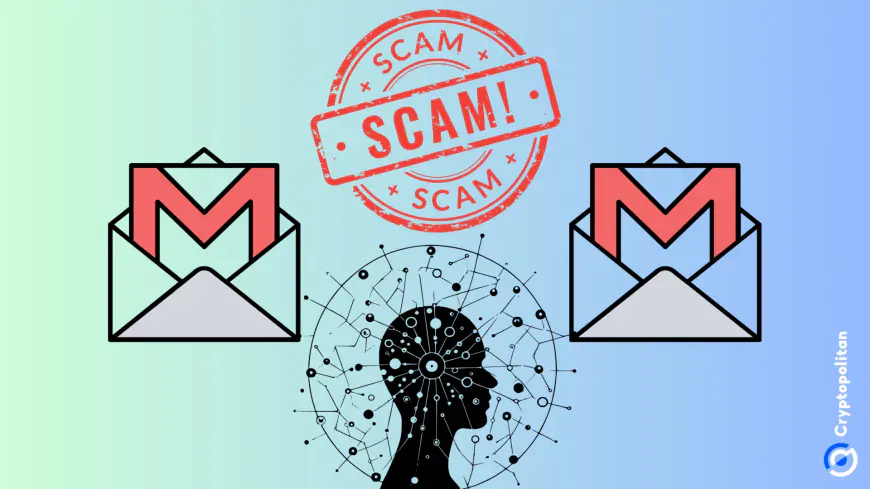AI-powered scam targets 2.5bn Gmail users
Gmail users might be at risk as an AI-powered scam is doing rounds and is targeting over 2 billion email accounts, in sophisticated phishing scams, a Fox News report reveals. Unlike other scams that are easy to detect due to their poor grammar or urgent requests for information, this new AI-based threat is reportedly hard […]

Gmail users might be at risk as an AI-powered scam is doing rounds and is targeting over 2 billion email accounts, in sophisticated phishing scams, a Fox News report reveals.
Unlike other scams that are easy to detect due to their poor grammar or urgent requests for information, this new AI-based threat is reportedly hard to notice, posing a threat to billions of users. With a total of 2.5 billion emails, this has made Gmail a good target for scammers, according to the report.
Users find it hard to detect the Gmail AI scam
According to people who have had real-life experiences with the AI-powered scam, it is difficult to detect as it is more sophisticated than others. Sam Mitrovic, a Microsoft solutions consultant revealed that his encounter with the scam started as a notification to approve a Gmail account recovery attempt.
Sam ignored the message, and it was followed up with a voice call, which he also ignored. A week later, Sam explained that he received the same message, and again followed up with a call, which he picked up this time.
The caller was polite using an Australian number which Sam verified and indeed it appeared on official Google documentation. However, Sam noticed something suspicious on the email, the “To” field had an email address named GooglMail at InternetCaseTracking dot com, an address that doesn’t belong to Google. That is when he realized the caller was not human but AI.
This is not unique to Sam alone but has occurred to many other Gmail users who have fallen victim to this AI-powered scam.
According to Fox News, when combined with AI calls and email spoofing, this scam becomes very dangerous. The report further explains that while AI has been a game changer in many fields across sectors, the same technology is growing to be dangerous as unscrupulous individuals take advantage of the tech to dupe unsuspecting people in many ways.
Sam indicated that scammers now spoof the sender’s email address to make it look like it’s from Google using Salesforce CRM. This platform enables users to customize the sender information to anything they choose while sending emails through Gmail and Google servers.
How to protect self from the Gmail AI scam
While the threat is becoming prevalent, there is also a way to protect one’s account from being an easy target or limit the threat. According to the report, there are five methods that Gmail users may employ to limit the threats.
One of the initiatives is to have a general understanding of Google’s automated support system. With billions of users, Google would not call Gmail users but make use of automated systems to help users with resetting their passwords, for instance.
Another method is to scrutinize the email addresses, in Sam’s case, the address was not associated with the Google domain.
Users also need to be cautious about links and attachments they see in the Gmail accounts. In this case users should avoid clicking on links and downloading attachments from suspicious and unknown emails.
Enabling a two-factor authenticator (2FA) always adds another layer of protection to the email account. This method makes it difficult for scammers to gain access to the email even if they have passwords.
The report also suggests regularly checking and monitoring one’s accounts for any suspicious activity.
According to the Fox News report, while AI technology has some very useful applications, it is also more actively exploited by scammers. The Gmail AI scam shows how it can also be difficult for anyone who is not very careful to detect threats easily and fall victim.
While users have a role, the reports also suggest that Google should improve its scam filters to limit the reach of impersonation scams in users’ mailboxes.
What's Your Reaction?









































































































